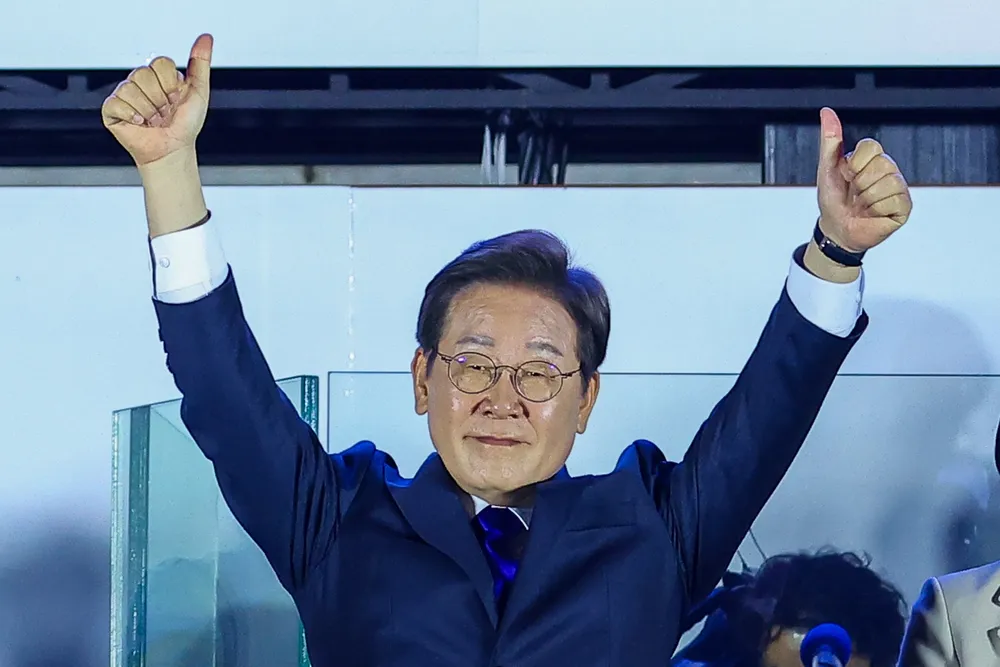Will South Korea's new president put EU wind giants on the 'energy expressway'?
Victory for Lee Jae-myung seen as positive for renewables in key market for global offshore wind players

South Korea’s challenger Lee Jae-myung won the country's presidential election in a result analysts said should boost the prospects for renewables in a key growth market for major European wind players.
Left-leaning Lee of the Democratic Party won 49% of the vote to end three years of Conservative rule in one of the world's top emerging markets for wind at sea.
During his campaign, Lee backed the expansion of renewables and said he wants to set up an “energy expressway” to bring power from offshore wind to industrial hubs.
The link would transmit power from 20GW of offshore wind farms off South Korea’s southwest via submarine cables.
The victorious candidate is also a heavy backer of AI infrastructure, which he wants to be powered by renewable energy.
His defeated opponent, Kim Moon-soo, was by contrast more aligned to expanding nuclear power, which Lee has said he will maintain but only to support a shift to renewables.
South Korea has emerged as one of Asia’s key markets for offshore wind, including floating turbines, with major European players active there both as developers and equipment suppliers.
The nation last week launched its latest tender for 1.25GW as part of a push to install 14.3GW by 2030.
Its growth has attracted production investments from EU wind OEM giants Vestas and Siemens Gamesa, with the latter poised to have its 14MW turbine made there in conjunction with local player Doosan.
On the development side, Equinor is advancing its 750MW Firefly project that is on course to be a global pioneer in large-scale floating wind, while Copenhagen Infrastructure Partners is also active there.
'Promise is there'
Eunji Kim, head of renewables permitting team at Korea-based think-tank Solutions for Our Climate said: "President Lee’s renewables-focused energy agenda is heading in the right direction, but offshore wind offshore wind needs more than political tailwinds.
With the recently enacted Offshore Wind Promotion Act set to take effect next March, this year demands precision and clarity. How the government defines zone designation criteria, manages transitional measures for existing developers, and resolves remaining regulatory challenges like the military height restriction will ultimately determine the law’s effectiveness, and the Lee administration holds the key to this."
Kim added: "The promise is there, but the administration must follow through with political leadership, high-level alignment, and clear execution to truly lead Korea’s transition to renewable energy."
Analeigh Suh, an analyst at BloombergNEF, wrote on LinkedIn that renewables and energy storage will be key to Lee’s policies and added: “Lee sees access to clean energy as key for the export-driven economy of South Korea where slow growth in renewables is challenging corporate energy buyers' access to affordable clean electricity.”
The RE100 group of corporate power buyers recently named South Korea as the world’s most challenging market for businesses wanting to source green energy.